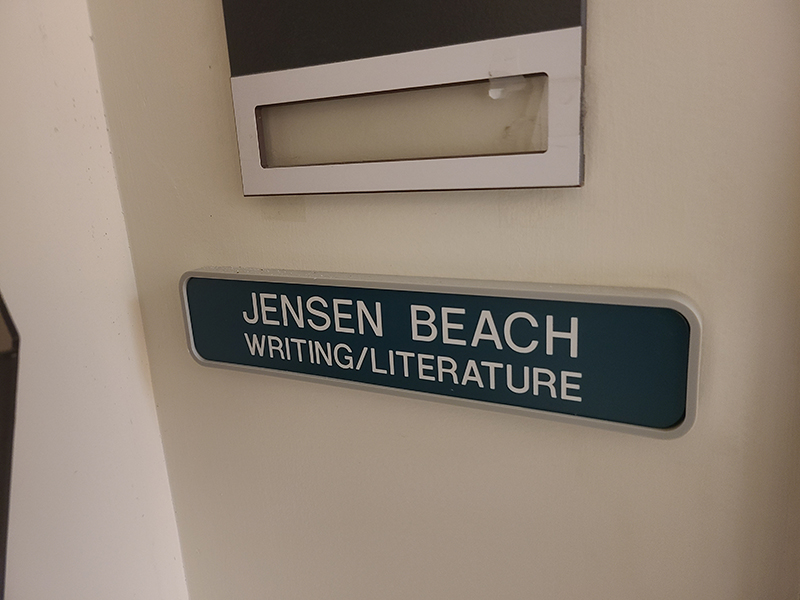The spring Writing Proficiency Exam is scheduled for Sunday, March 18, from 9 a.m. until noon and for Thursday, March 22, from 7 to 10 p.m.
The exam is a graduation requirement for all JSC students except those in the EDP program.
The exam administrator, Assistant Professor of Writing and Literature Tyrone Shaw, has scheduled two weeks of prep sessions preceding the exams and he urges those planning on taking it to attend one.
“Pass rates are definitely higher for those who take advantage of these sessions,” he said. “Basically, I offer general advice on what the exam readers are looking for, what kinds of evidence work best, and some effective approaches to structuring an effective persuasive essay. Why wouldn’t you want to attend one of these?”
Prep sessions are being offered on Thursday, March 8, at 11:00 a.m. in the 1867 Room in Dewey; Monday, March 12, at 10:00 a.m. in the Freda Hebb conference room in Martinetti; Wednesday, March 14, at 10:00 a.m. in the 1867 Room; Thursday, March 15, at 10 a.m. in the Freda Hebb room, and on Tuesday, March 20, at 10:a.m. in the Freda Hebb room.
Sessions last approximately 45 minutes, according to Shaw. “This is time well spent,” he said. “Even if you think you’re definitely going to have no problem, it doesn’t hurt to have a refresher.”
The exam itself was posted on Moodle March 8. Students wanting to register for the test, which is held in WLLC 216 for those wishing to use a computer and WLLC 213 for those preferring to take it longhand, need to do so online prior to the exam.
Shaw said he would do his best to accommodate those unable to make the scheduled prep sessions. “They should just email me,” he said. “I’ll try to sit down with them one-on-one if that’s what it takes.”
Those failing the exam twice must satisfy the graduation requirement by taking the three-credit Self-Sufficient Writer. Those failing it once can choose to take it again or go directly into that course.
Timing is important, says Shaw, who suggests that students take the exam, at least for the first time, when they have reached about 60 credits. “Don’t wait on this,” he said. “You know you’ve got to do it, so don’t put if off beyond your sophomore year. That way, remediation is still possible and you won’t find yourself in a mess when it comes time to graduate. Anyone receiving a degree from here ought to be able to write a clear, persuasive essay.”




